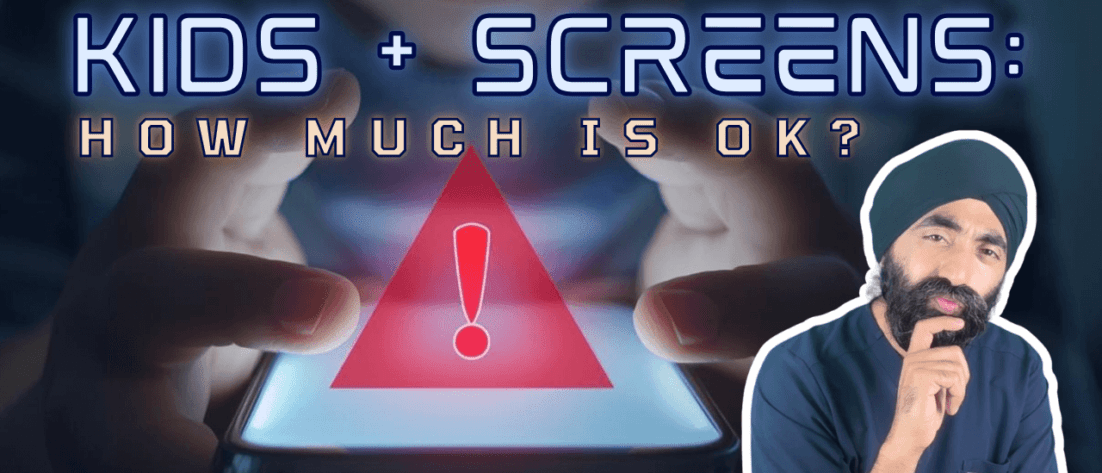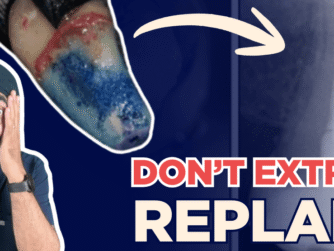Podcast: Play in new window | Download (Duration: 54:16 — 75.5MB)
Are smartphones even safe for children?
What is the right age to give a child their first phone?
Laura Spells and Arabella Skinner join Jaz in this thought-provoking episode to tackle one of today’s biggest parenting challenges: smartphones and social media in young hands. Together they explore the impact of early phone use on children’s health, development, and mental wellbeing—and why healthcare professionals should be paying close attention.
Protrusive Dental Pearl: Live by your values—not your profession, spouse, or children. Don’t sacrifice for them; choose what aligns with you, so love never turns into resentment.
Need to Read it? Check out the Full Episode Transcript below!
Key Takeaways
- Screen time is a significant public health concern. Mental health issues are rising due to social media exposure.
- Early childhood screen time has long-term effects. Parents need clear guidance on screen time limits.
- Community support is essential for children’s well-being.
- Health professionals must ask about screen time in assessments.
- Regulatory changes are needed for safer screen use.
- The impact of social media on self-esteem is profound. Misinformation about health trends can lead to dangerous practices among youth.
- Dentists play a crucial role in educating patients about safe health practices.
- Parents should engage in conversations about social media with their children.
- Creating a family digital plan can help manage screen time effectively.
- Collaboration among health professionals needs to raise awareness about the dangers of unregulated products.
- Empowering parents with knowledge is essential for effective parenting in the digital age.
- Role modeling healthy behaviors is important for parents.
Highlights of this episode:
- 00:00 TEASER
- 01:18 INTRO
- 03:13 PROTRUSIVE DENTAL PEARL
- 04:54 Introducing Our Guests: Arabella and Laura Spells
- 09:24 Statistics and Scale of the Problem
- 18:09 Early Years and Screen Time
- 22:27 Safer Alternatives and Regulation
- 27:08 MIDROLL
- 30:29 Safer Alternatives and Regulation
- 30:53 Ideal Guidelines for Screen Usage
- 34:01 The Role of Dentists in Addressing Social Media Issues
- 44:59 Parental Guidance and Digital Plans
- 53:53 Final Thoughts and Resources
- 56:06 OUTRO
✅ Action Steps
🔹Seven Habits of Highly Effective People by Stephen Covey for habits that support balanced parenting and leadership.
🔹 Kindred Squared School Readiness Survey on how early screen use impacts child development.
🔹 Follow Health Professionals for Safer Screens for practical tips to share with families, and on their Instagram for bite-sized advice
🔹 Support the Smartphone-Free Childhood Campaign to delay smartphone use in children.
If this episode gave you new insights, you’ll definitely benefit from Parenthood and Dentistry (Even if You’re Not a Parent!) – IC025
#InterferenceCast #BeyondDentistry #Communication
This episode is eligible for 0.75 CE credit via the quiz on Protrusive Guidance.
This episode meets GDC Outcomes A and B.
AGD Subject Code: 550 PRACTICE MANAGEMENT AND HUMAN RELATIONS
Aim: To provide dental professionals with an understanding of the health risks of early smartphone and social media use in children, and how dentists can play a role in safeguarding and guiding families toward safer digital habits.
Dentists will be able to –
- Recognize the health and developmental impacts of early and excessive screen use.
- Identify how social media contributes to anxiety, body image concerns, and misinformation (including dental-related fads).
- Discuss practical strategies that families can use to create healthier digital habits.







